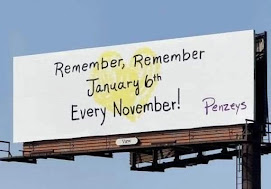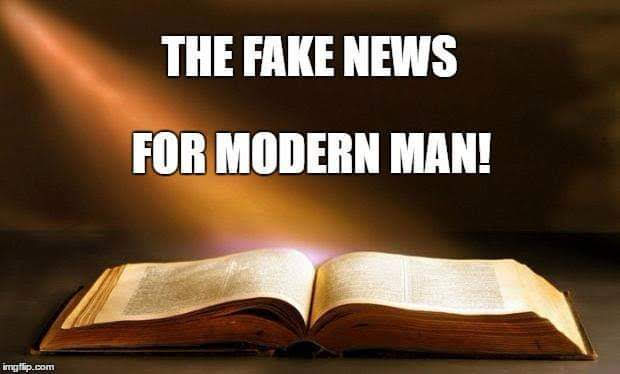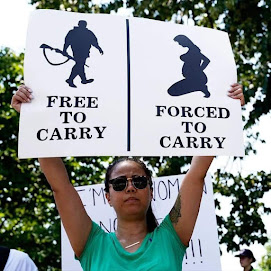The Second Democratic Debate Was a Great Night for Republicans
by John Nichols
It was a great night for Republicans.
The contenders for the 2016 Democratic presidential nomination gathered to debate for only the second time, in Des Moines Saturday evening. As such, it was a big moment for their party. Yet the Democrats kept citing the examples of Republicans to explain — and justify — their policies on everything from progressive taxation to breaking up big banks.
Just to clarify, the Democrats were not referencing 2016 Republicans, who in each new GOP presidential debate further expose the extent to which the party of Lincoln has broken faith with every idea for which it ever stood.
Saturday was a great night for the Republican Party that was and the Republican presidents who were.
“I’m not that much of a socialist compared to Eisenhower.” —Bernie Sanders
While contemporary Republicans have gone to such right-wing extremes that they no longer find much to celebrate in their partisan predecessors, the Democrats who would be president were more than happy to reference Republicans presidents. In so doing, they provided something that is rare and valuable in this volatile political season: historical perspective that challenges a false narrative. That false narrative suggests that Hillary Clinton, Bernie Sanders and Martin O’Malley have gone off the radical cliff of Ted Cruz’s imagining, that Democrats are “getting too liberal,” that the contenders for the mantle of Franklin Roosevelt and Harry Truman have “pulled too far left.”
The critical exchange came when CBS News Congressional Correspondent Nancy Cordes challenged Vermont Senator Bernie Sanders on how he would pay for the popular initiatives — free higher education, expansion of Social Security, investment in infrastructure — that he has proposed.
“Let’s get specific,” she asked about tax rates. “How high would you go? You’ve said before you’d go above 50 percent. How high?” “We haven’t come up with an exact number yet,” replied Sanders. “But it will not be as high as the number under Dwight D. Eisenhower, which was 90 percent.”
As the crowd cheered the mention of the “modern Republican” who served as president from 1953 to 1961, the senator, who is frequently asked to explain his democratic socialism admitted, “I’m not that much of a socialist compared to Eisenhower.”
“That’s right!” added former Maryland Governor O’Malley, who moments later noted with regard to the Republican who served as president from 1981 to 1989 that “Under Ronald Reagan’s first term, the highest marginal rate was 70 percent.”
Both Sanders and O’Malley were indeed right. During Eisenhower’s first term, the top marginal tax rate on regular income was 92 percent. During Reagan’s first term, the top rate was 69.1 percent.
Sanders was equally right at another point in the debate when, during a heated back-and-forth with the Democratic front-runner, former secretary of state Clinton, over how best to deal with too-big-to-fail banks, the senator from Vermont said, “If Teddy Roosevelt, a good Republican, were alive today, you know what he’d say? Break them up.”
“Not even Ronald Reagan would fit into this Republican Party.”
—Congressman Xavier Becerra
During the same exchange, Clinton embraced economist Paul Volcker, who has worked with both Democratic and Republican presidents, but who came to prominence as under-secretary of the Treasury for international monetary affairs during Republican Richard Nixon’s presidency and who chaired the Federal Reserve through most of Reagan’s White House tenure.—Congressman Xavier Becerra
The Democratic presidential candidates were referencing Republican presidents and their administrations at a steadier rate than the Republican presidential candidates.
What was that all about?
The Republican Party, founded in 1854 as a radical alternative to the failed American politics of the mid-19th century, served across much of the first century of its existence as a responsible and often progressive political force. But no more, as the Democratic contenders noted on Saturday night.
O’Malley drew knowing applause when he referred to the Republican front-runner as “that immigration-bashing carnival barker Donald Trump.” Clinton, while noting Saturday night’s genuine clashes on Wall Street regulation, guns and campaign-finance issues, complimented her fellow Democrats by noting that — unlike the Republicans — “All of us support funding Planned Parenthood. All of us believe climate change is real. All of us want equal pay for equal work.”
“Every one of the Republicans that was mentioned in the debate tonight would have a hard time fitting into the Republican Party today,” said California Congressman Xavier Becerra, the chairman of the House Democratic Caucus. “Not even Ronald Reagan would fit into this Republican Party.”
Democratic National Committee chair Debbie Wasserman Schultz was bemused by the notion that her party’s candidates were embracing past Republican presidents more warmly than do current Republican presidential contenders.
“That’s exactly what is wrong with the Republican Party today,” said the Democratic congresswoman from Florida. “They have been pulled so far to the right that they don’t even talk about these Republican presidents. But the Democrats don’t mind reaching across the aisle.”
Or across the historical divide that has opened up in the Grand Old Party.
The views expressed in this post are the author’s alone, and presented here to offer a variety of perspectives to our readers.

























No comments:
Post a Comment